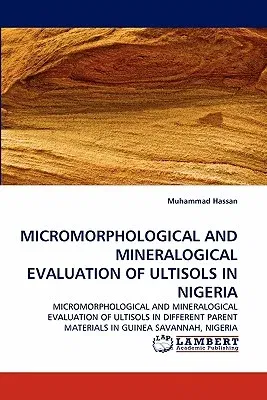Muhammad Hassan
(Author)Micromorphological and Mineralogical Evaluation of Ultisols in NigeriaPaperback, 6 May 2011

Qty
1
Turbo
Ships in 2 - 3 days
In Stock
Free Delivery
Cash on Delivery
15 Days
Free Returns
Secure Checkout
Print Length
196 pages
Language
English
Publisher
LAP Lambert Academic Publishing
Date Published
6 May 2011
ISBN-10
3844331425
ISBN-13
9783844331424
Description
Product Details
Author:
Book Format:
Paperback
Country of Origin:
US
Date Published:
6 May 2011
Dimensions:
22.86 x
15.24 x
1.14 cm
ISBN-10:
3844331425
ISBN-13:
9783844331424
Language:
English
Location:
Saarbrucken
Pages:
196
Publisher:
Weight:
294.83 gm

